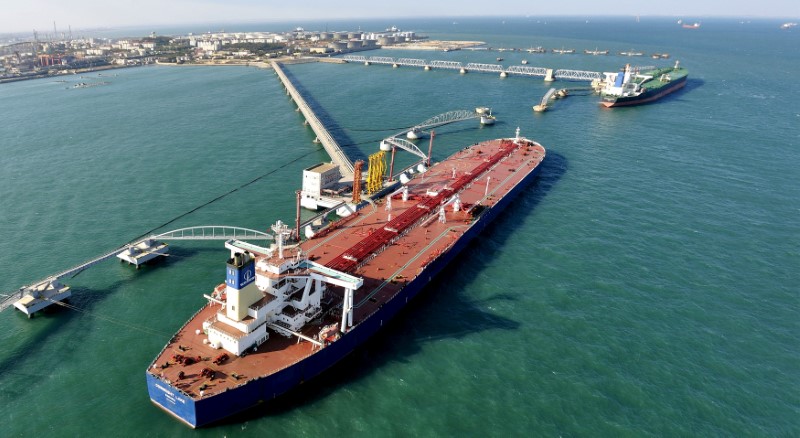By Keith Wallis
SINGAPORE (Reuters) - Crude prices rebounded on Monday after Algeria's energy minister said the day before that all options were possible for an oil output cut or freeze at this week's informal meeting of OPEC producers.
That came after prices tumbled 4 percent on Friday amid signs Saudi Arabia and Iran were making little progress in achieving preliminary agreement to freeze production.
Members of the Organization of the Petroleum Exporting Countries will meet on the sidelines of the International Energy Forum in Algeria from Sept. 26-28, where they will discuss a possible output-limiting deal.
"We will not come out of the meeting empty-handed," Algerian energy minister Noureddine Bouterfa said in Algiers on Sunday.
A weaker U.S. dollar also supported oil prices.
However, the oil market is still weak and will remain volatile in the near future, Amin Nasser, Saudi Aramco chief executive, told a conference in Dubai on Monday.
Brent crude futures had climbed 37 cents to $46.26 a barrel as of 0631 GMT after settling down $1.76, or 3.7 percent, at the previous close. The benchmark advanced 0.3 percent last week.
U.S. West Texas Intermediate (WTI) crude futures rose 32 cents to $44.80 a barrel after falling $1.84, or 4 percent, in the previous session. U.S. crude gained 3 percent last week.
"The fact countries like Algeria are still talking about a deal means it's still on the table regardless of others' views about what might be happening," said Jonathan Barratt, chief investment officer at Sydney's Ayers Alliance.
"I expect Algeria and Venezuela to keep pushing for a deal - it's imperative for them to keep the price up," Barratt said.
Signals have been mixed so far on whether a deal on cutting or freezing production is possible.
Sources told Reuters on Friday that Saudi Arabia did not expect a decision to be made in Algeria, while Saudi Arabia had also offered to reduce production if Iran caps its own output this year, an offer to which Tehran had yet to respond.
"Our base case is that OPEC will meet on Sept. 28 without a formal statement. A non binding commitment to stabilise oil markets is possible, but it would likely lack teeth," Morgan Stanley (NYSE:MS) said in a note on Monday.

"Rather, we expect OPEC to note how this meeting lays the foundation for a more constructive and formal discussion at the official November OPEC meeting," the bank added.